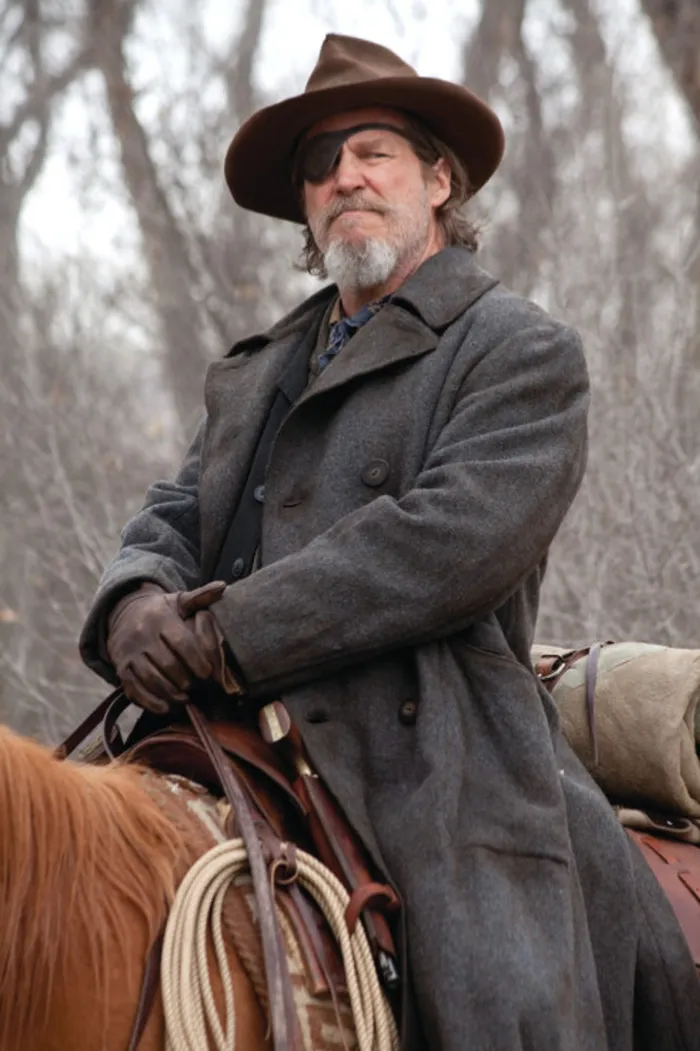True Grit

This new cinematic offering by the Coen brothers, Joel and Ethan, has been hailed as their most “unaffected” film. The suggestion is that their repertoire has been marked by a brand of self-conscious filmmaking.
For those who revel in the cerebral and self-referential dimensions of storytelling, this signature quality has been one of the most prized aspects of the Coens’ body of work.
A Serious Man, their previous film which was released last year, perhaps marked the apogee of this feature.
Perhaps because of this the Coen brothers have decided to dispense with any sophisticated analysis of storytelling, choosing to embrace a straightforward narrative propelled by basic human compulsions such as retribution.
In a sense True Grit has brought them full circle to Blood Simple, their first feature, a tight tale centred on a cuckold bent on avenging his wife and her lover.
Twists aside it was a simple story well told. Such is the case with True Grit, an adaptation of a 1968 novel by Charles Portis, which recounts a young girl’s journey to avenge her father’s murderer.
There are no unexpected twists in this story, nor is it infused with the brothers’ characteristic penchant for suspense. So in a way this is the most un-Coen movie the maverick brothers have produced.
This is perhaps most obvious when Mattie Ross (Hailee Steinfeld) finally comes face-to-face with her father’s murderer, Tom Chaney (Josh Brolin), a scene that is seemingly bereft of significance and is rendered as a banal.
The focus of this film is not vengeance and the politics thereof but the unexpected relationship that blossoms between Ross and Rooster Cogburn (Jeff Bridges), a marshal whom Ross hires to track down Chaney.
Cogburn is the antithesis of Ross; he is a heavy-drinker driven by a questionable moral code. His flabby, heavy body, his discursive manner of speech, underpins this sense of him as a directionless man past his prime. In contrast Ross is a bright-eyed, determined and sharp 14-year-old full of promise, who appears to be guided by an unwavering sense of right and wrong. She is adamant that Chaney must pay for taking the life of her father. It is not quite a question of an “eye for an eye”: she wants to ensure that he is sentenced in a court of law before being treated to a public hanging.
Unable to chase after Chaney and capture him on her own, she secures the services of Cogburn, who is rumoured to possess “true grit”. That term has little currency in this day and age but in the mid-1800s and in the Wild West, the setting of this story, this quality would have been highly prized.
Ironically, it is the young Ross, the bold teenager with chutzpah, who evinces a more enduring sense of “true grit”. Undoubtedly the harsh living conditions and ruthless social mores of that era compel such a trait. Nevertheless, she certainly seems to have cultivated it in bucket-loads.
As with the Western genre, the Coen brothers summon the unforgiving conditions of the Wild West, but they up the ante as the level of idealism that perhaps pervaded that genre around the 50s is quite absent. As Cogburn and Ross head into the Indian Territory to track down Chaney they enter no-man’s land, where life is cheap and man metes out his own form of justice.
In one haunting scene they encounter a man’s limp body hanging high from a tree. After it is cut down it is traded: here cadavers are commodities that are exchanged for food, medicine. This is survivalist territory, where there are no witnesses to a man’s or woman’s actions.
Consequently the schism between law and human nature forms the subtext of this western tale. In this Wild West zone, people are exempt from reason and the rule of law. In such a setting Ross’s desire to force Chaney to surrender to the rule of law is naïve and untenable.
While at first it seemed as if the Coen brothers had finally transcended their cynical tact, demonstrated by the presentation of such a pure and untainted character made of firm moral fibre, they suggest that in the face of such pervasive immorality defiant ethical resolves cannot be completely sustained – particularly when survival is at stake.
Predictably, Ross must pay a price for her unyielding need for justice – it’s a steep cost but one she can live with.
It is not so much the story that leaves a lasting impression, but the visual texture of this film. The barren, flat landscape, which forms the backdrop to the action underscores the vastness of the territory the characters occupy, thus almost dwarfing their significance and their petty preoccupations.
In contrast the Coens offer a close study of the textures of life in that era; like the yellow stains on Cogburn’s sagging long johns.
Ultimately, though, True Grit is an old-fashioned tale well told and nothing more. For Coen devotees this will come as a disappointment but for those who were perplexed by their more sophisticated offerings, such as A Serious Man or Burn After Reading, it might come as a relief.